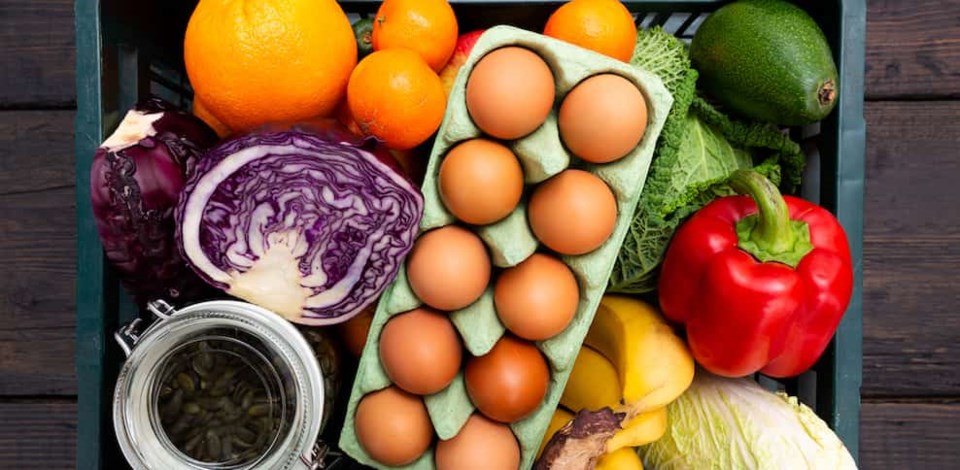On Oct. 19, Village of Pemberton (VOP) mayor and council were presented with a report seeking their continued collaboration on a Sea to Sky Food Recovery Strategy.
The report, presented by the Village’s OCP policy planner Lisa Pedrini and Whistler Centre for Sustainability’s planning and engagement specialist Shannon Gordon, is aimed at reducing food waste in the Sea to Sky corridor by improving food recovery and redistribution efforts.
Food recovery simply means redistributing all food that can be kept out of the waste stream by donating it to local food programs.
In Pemberton and the surrounding area, food waste currently accounts for approximately 10 per cent of the waste stream, while over 70 per cent of the current waste heading to landfills could have been either recycled or composted.
The report also outlined food security issues in Pemberton and the surrounding area. Five per cent of people are food insecure according to the report, with that number quadrupling in First Nations communities.
“This data is [from] 2013, so that has probably increased. Certainly, during COVID, youth are more at risk with seven per cent going to bed hungry and not having food in the morning for breakfast,” said Gordon.
“And then Indigenous peoples are even higher in terms of being food insecure at 22 per cent. So [there are] certainly some challenges in our area.”
The report outlines five strategies to address these food and waste issues, including: securing additional recovered food donations to meet food bank and program needs, removing barriers to accessing food programs, working with remote communities on food recovery and redistribution as desired or requested, and building overall capacity related to food waste and recovery.
One example of how these strategies could potentially be accomplished is as simple as finding more cold storage space to store recovered food.
“Sometimes there’s food available and they have nowhere to store it, especially the perishable stuff,” said Gordon.
A few ways the strategies could be rolled out, as Pedrini outlined at the Oct. 19 council meeting, include increasing access to commercial kitchen spaces that are large enough to handle the processing and preserving of food donations, and encouraging a take-home culture when it comes to leftover food from events and gatherings, as guest-facing foods are not eligible to be donated to foodbanks.
Overall, within the five strategies targeting areas of need, the report outlines 27 total recommended actions for the Village to adopt to reach its goals of reducing food waste and increasing food accessibility for those in need.
One concern about the report, raised by Councillor Ted Craddock, was the lack of emphasis on educating people about how food items should be properly disposed of.
“From my personal perspective, I find I don’t have any garbage at the end of the month, I compost and recycle everything. So I guess for me reading through there, I didn’t see anything there that said, OK, save your broccoli ends or don’t throw out that can that’s dented,” he said. “So how does the ordinary person understand what can be utilized? Rather than looking at and saying, ‘well the orange is bruised, I don’t want to eat that and so I’m just going to throw it out.’”
In response to Craddock, Gordon pointed to Action 24 in the plan, which aims to deliver the “Love Food, Hate Waste” campaign to educate people on food waste and celebrate major food donors. However, she did admit more could be done on the education side and expressed her hope that the Village will join the Resort Municipality of Whistler in pushing this campaign to more people (Pique, Oct. 11, “What to do about our immense food waste”).
The report was ultimately received by mayor and council, with a motion raised and seconded to follow the report’s recommendations “that the Village of Pemberton continues to support the Village’s participation in regional collaboration around food waste reduction and zero waste,” and “that Council direct staff to include relevant information and actions from the Sea to Sky Food Recovery Strategy and Action Plan in relevant policy work such as the Official Community Plan and the Community Climate Action Plan.”




